
M.J. KELLEY II
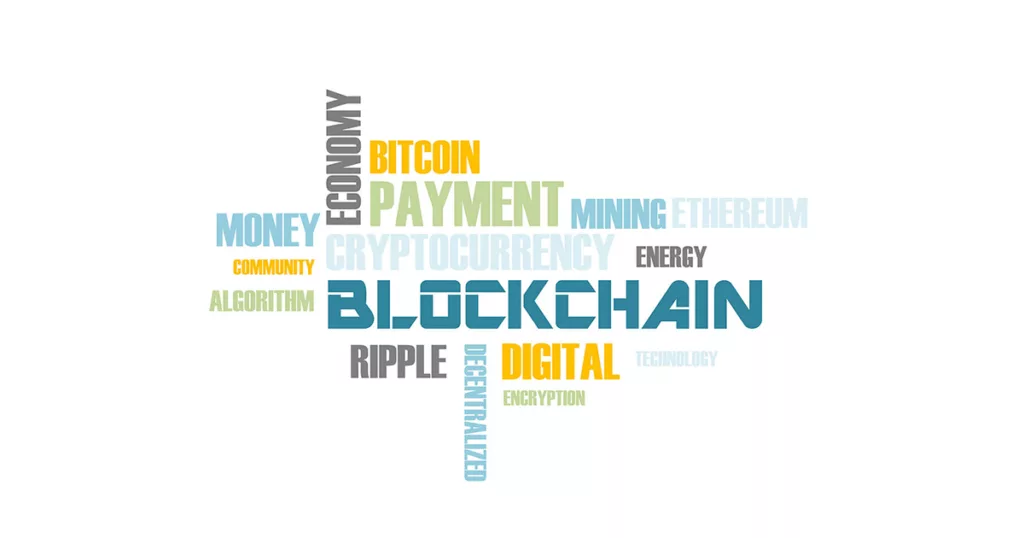
Blockchain technology is one of the most advanced inventions of our era. It is a decentralized ledger system that allows for secure and transparent peer-to-peer trading without relying on a centralized third party. This decentralized system enables users to control their data and transactions without any risk of data manipulation or fraud. The potential of blockchain technology to revolutionize the crypto industry by providing secure and transparent transactions and data storage is vast. In this article, we will explore some of the latest developments in blockchain technology and their impact on various industries.
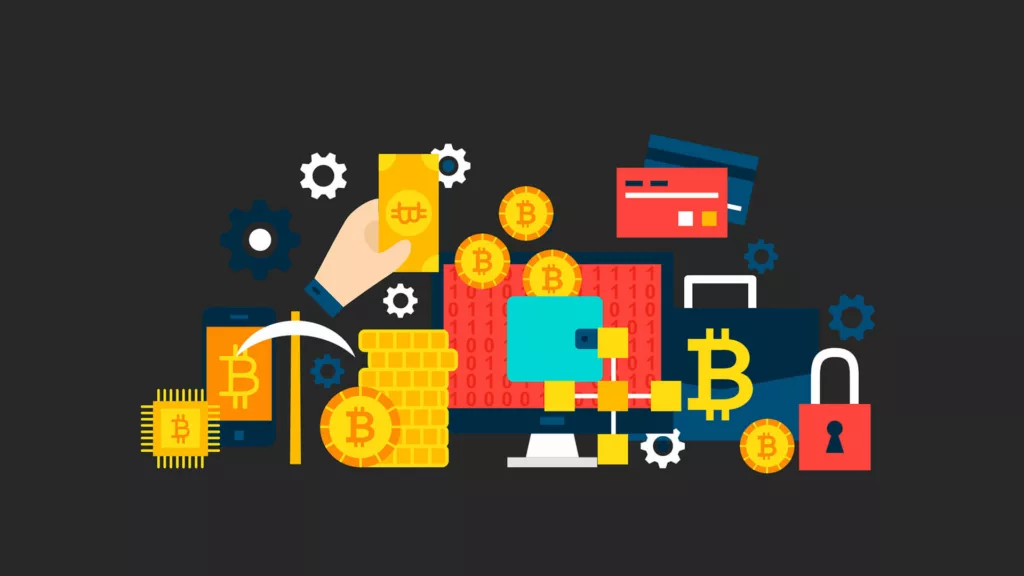
We expect blockchain technology trends to evolve over the next few years. By 2023, some top trends will include blockchain for supply chain finance (SCF), smart contracts, cryptocurrency development, crypto wallet development, decentralized applications (DApps), and web 3.0 development.
SCF helps businesses manage their finances more efficiently by providing a secure platform for transactions and record keeping. Smart contracts are computer protocols that enable users to securely exchange data in a digital form without requiring third-party verification. Cryptocurrency development is rapidly expanding as more companies embrace digital currencies like Bitcoin. Crypto wallets offer a straightforward and protected approach to maintaining their digital currencies.
Meanwhile, DApps are decentralized applications situated on blockchains that let people collaborate without requiring go-betweens or third parties. Finally, web 3.0 development provides developers with new tools for building decentralized applications that can run on blockchains and interact with other systems. All of these trends will continue to shape the future of blockchain technology in 2023 and beyond.
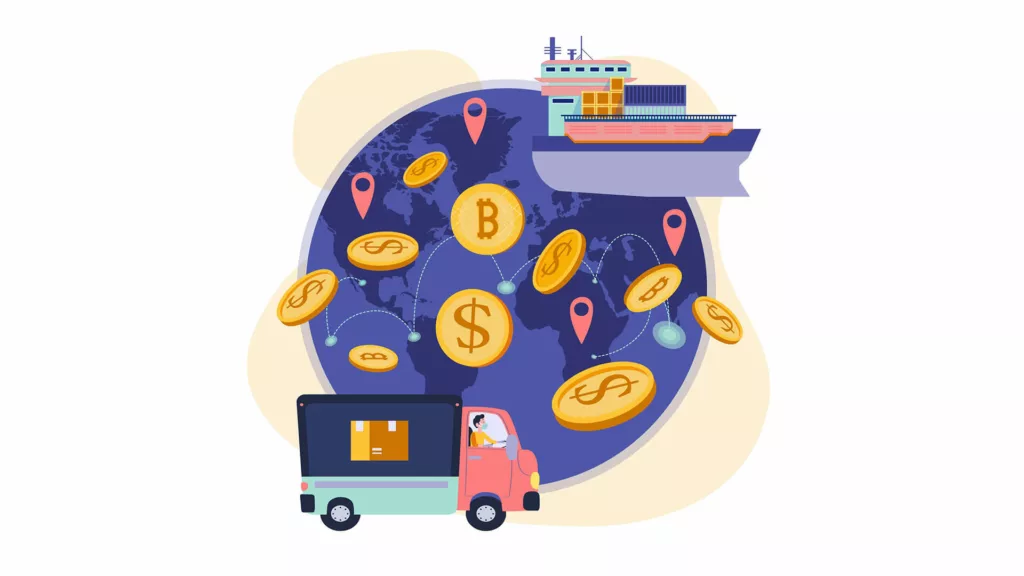
Blockchain for Supply Chain Finance (SCF) is one of the latest developments in blockchain technology. It is a new decentralized financing model that allows companies to access capital quickly and securely. Through SCF, companies can access money with minimal paperwork and get paid much faster for their goods and services. The use of blockchain technology in SCF eliminates the need for intermediaries, which helps reduce costs, increase efficiency and provide better security.
SCF is designed to revolutionize the supply chain finance industry by providing a secure and transparent transaction platform. By eliminating intermediaries and centralized systems, SCF helps reduce data manipulation or fraud risk. The use of smart contracts also helps to automate transactions and eliminate the need for manual processing, which further increases efficiency and reduces costs.
The Blockchain for SCF Masterclass is an intensive and comprehensive seminar that examines the most recent progressions in blockchain technology for SCF. The session conveys thorough information and comprehension of blockchain technology’s newest goods and the possible effect on the supply chain finance sector. It is formulated for experts and businesses wishing to get acquainted with the most up-to-date advancements in blockchain technology and how it can be related to the supply chain finance industry.
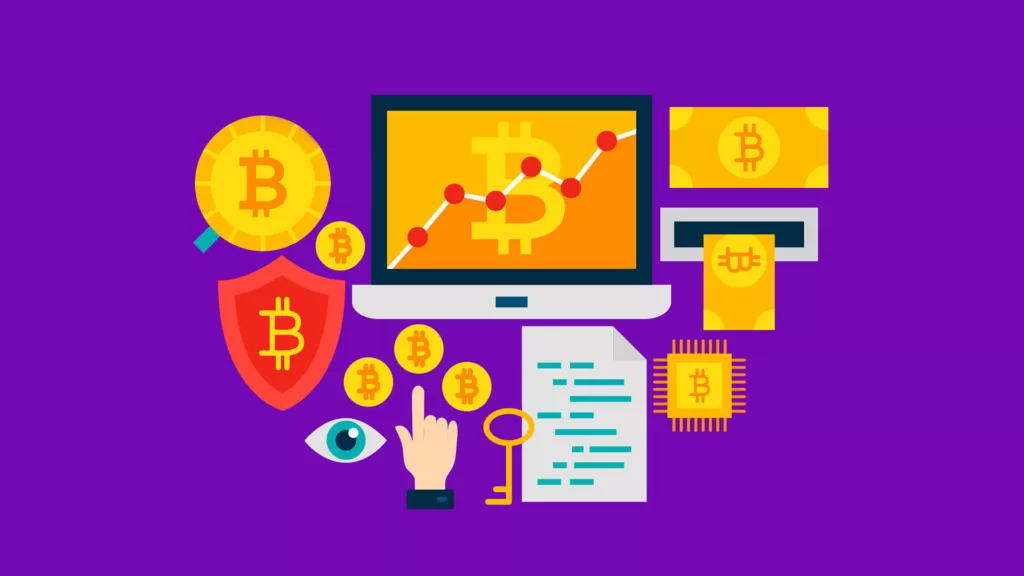
Development in Blockchain technology has played a crucial role in the creation of smart contracts. These contracts are computerized agreements that automatically execute the stipulations of a deal between two parties. They incorporate the terms of the buyers and sellers into a code. These contracts are stored on the blockchain network and are executed automatically without needing a third-party intermediary. They are automating transactions and eliminating intermediaries results in a more efficient and cost-effective process for both parties involved.
Smart contracts are particularly useful in the legal industry, as buyers can use them to automate the exchange of money and other assets. This technology helps to increase transparency and security in transactions, as all parties can access the contract on the blockchain network and monitor the execution of the contract in real time. Additionally, they can reduce the time and effort required to execute transactions, leading to a more streamlined and efficient process.
Smart contracts have many applications, including real estate, insurance, and voting systems. They provide a secure and transparent platform for businesses and individuals to conduct transactions without needing a third-party intermediary. As blockchain technology progresses, these will become more prevalent, resulting in more productive and secure transacting.
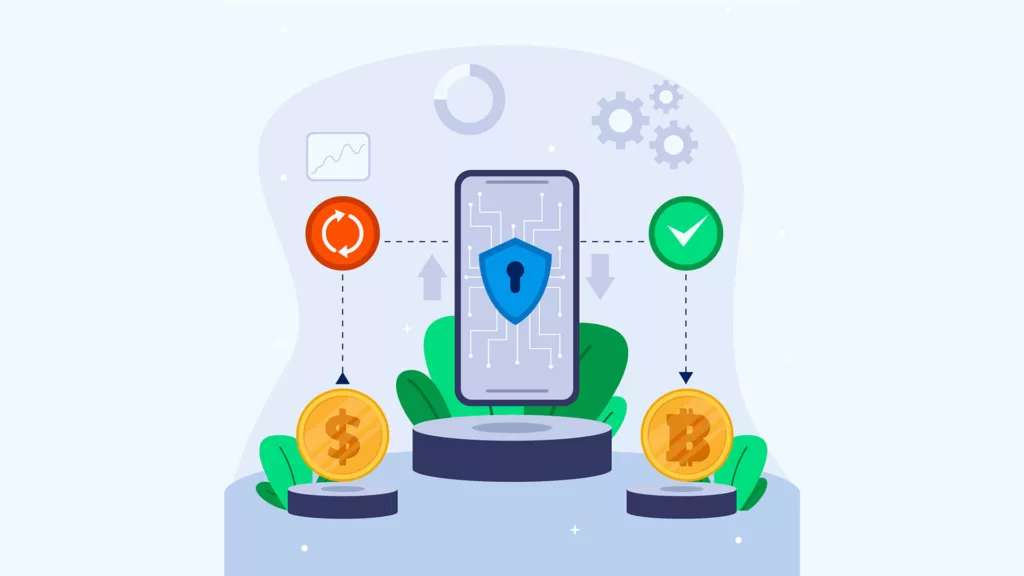
Blockchain technology is crucial in creating secure digital currencies, allowing users to store, send and receive digital currencies without needing a centralized third party. With the rise of cryptocurrency, blockchain technology has revolutionized the financial sector by providing a secure and transparent means of conducting transactions without the risk of data manipulation or fraud. Digital currencies are verified and recorded on the blockchain, providing a permanent and transparent record of all trades.
Blockchain technology has enabled the emergence of multiple secure digital currencies, including Bitcoin, Ethereum, and Litecoin. These digital currencies are decentralized and operate independently of central banks and governments, allowing users to conduct transactions with anonymity and privacy. The blockchain network is constantly updated, providing real-time updates of all trades and ensuring that all data is secure and transparent.
Furthermore, blockchain technology has facilitated the development of decentralized exchanges, allowing users to directly exchange digital currencies among themselves without requiring a central authority. Blockchain has revolutionized the financial sector by reducing costs and increasing efficiency, making it easier for users to access, use and trade digital currencies. With blockchain technology, users can now conduct transactions with greater security and transparency, leading to the widespread adoption of digital currencies and blockchain technology in the financial sector.
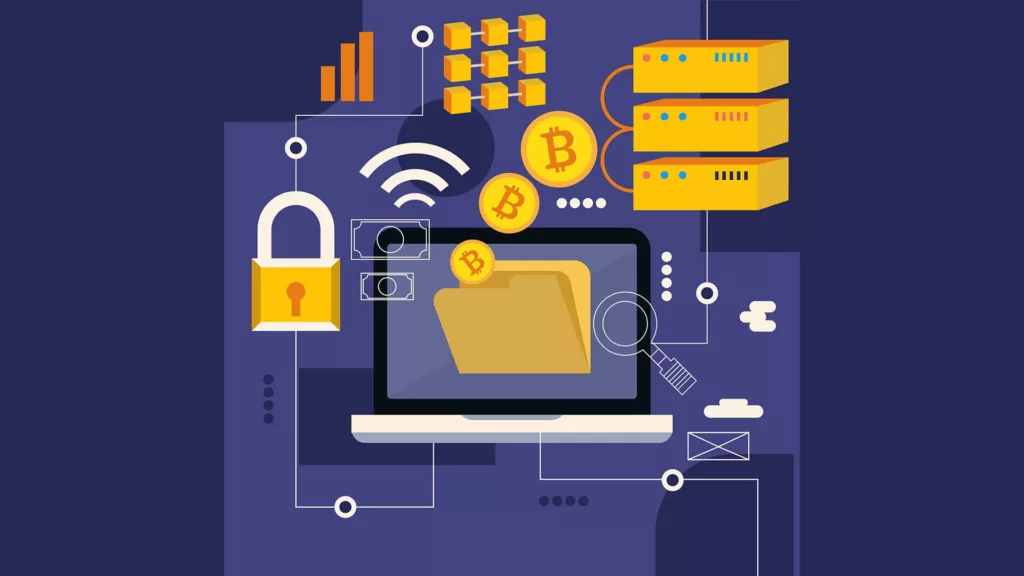
Blockchain technology has paved the way for the development of crypto wallets. A crypto wallet is a digital safe that securely holds virtual assets such as digital currencies. These wallets are designed to give users easy access to their digital assets and enable secure transactions. Blockchain technology has enabled crypto wallets to be decentralized, meaning users have complete control over their assets without needing a third-party intermediary.
Crypto wallet development is an essential aspect of the cryptocurrency industry. Wallets are crucial for users to control and keep their digital possessions. The blockchain technology used in crypto wallet development ensures that users’ assets are held securely and are accessible only with their permission. Moreover, the decentralized nature of crypto wallets eliminates the risk of data manipulation or fraud by centralized third-party intermediaries.
In addition, the latest advancements in crypto wallet development have enabled users to easily send and receive cryptocurrencies and exchange them with other digital assets. With the increasing popularity of cryptocurrencies, crypto wallet development is a rapidly growing industry, with numerous companies vying to provide users with the best and most secure wallets. In conclusion, blockchain technology has revolutionized the crypto wallet industry by enabling the development of fast and decentralized crypto wallets.
If you are aiming to begin investing in digital currencies, picking the correct crypto wallet to keep your funds is essential. With so many options available, it can be overwhelming to determine which wallet is best suited for your needs. We have compiled a helpful article to help you select the best cryptocurrency wallet. This comprehensive guide provides an in-depth look at the different types of crypto wallets available, their features and security measures, and tips on choosing the right one. If you are just getting started with cryptocurrencies or are a seasoned investor, this article is essential reading.
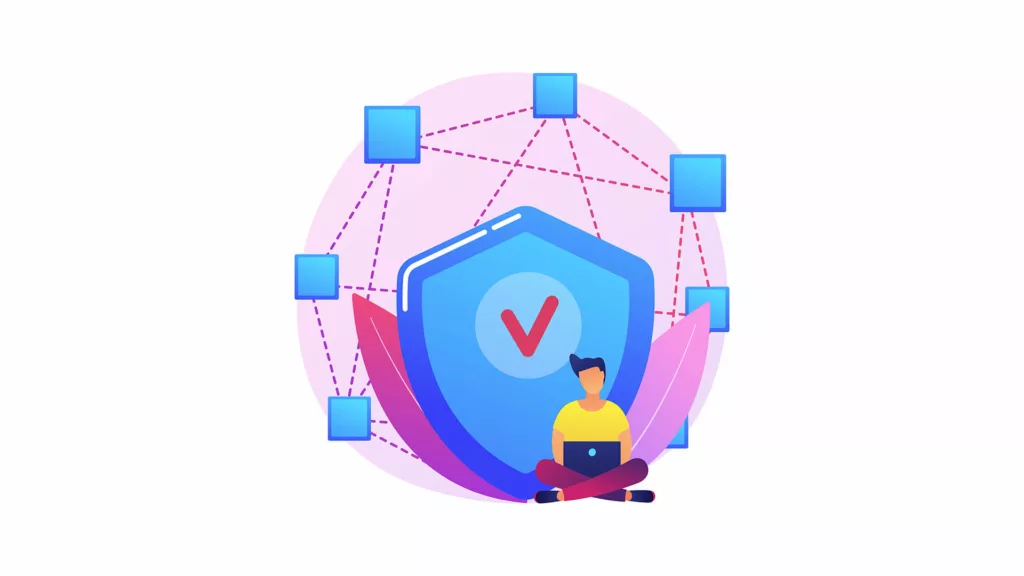
Blockchain technology has opened up the possibility of creating decentralized applications (DApps) which offer a secure and transparent platform for executing transactions and storing data. DApps are built on the blockchain network and distributed across a network of computers, making them immune to censorship or manipulation. This feature makes DApps particularly attractive for businesses that require a secure and reliable platform for transactions and data storage.
The decentralized nature of DApps allows for greater user control and security. Since there is no central authority, users control their data and transactions without the risk of data manipulation or fraud. Dapps creates a more equitable and democratic platform where users can interact with one another without relying on a significant third party.
DApps are adjustable and can be tailored to meet the individual requirements of a business. Buyers can use them to automate various operations such as payments, record keeping, and many other processes, reducing the need for manual processing and increasing efficiency. The blockchain technology underlying DApps has the potential to revolutionize various industries such as finance, healthcare, insurance, and many others. With the growing demand for secure and transparent platforms, blockchain in decentralized applications will likely continue gaining traction in the future.
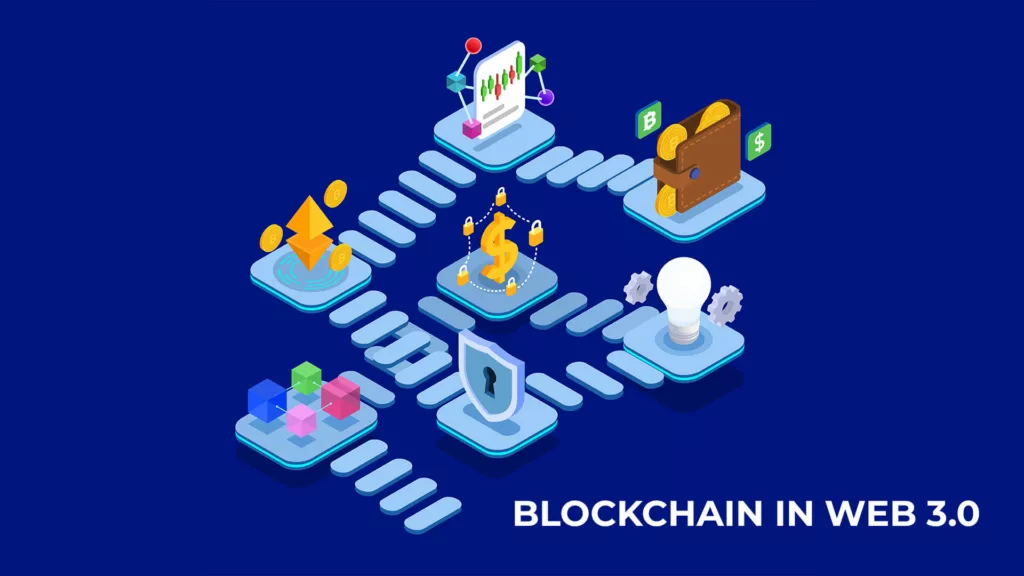
Blockchain has revolutionized the tech sector, and now Blockchain developers are deploying it in the invention of Web 3.0. Web 3.0 is the next internet generation built on decentralization, transparency, and security principles. Blockchain technology is an ideal fit for these principles due to its decentralized, safe, and translucent nature.
Blockchain technology is crucial in developing Web 3.0 to create a decentralized and secure web where users can own their data and control their online identity—achieving Web 3.0 through decentralized identity systems and decentralized storage systems. These systems allow users to securely store and manage their data and access it from anywhere in the world without relying on centralized third-party platforms.
Built on the principles of decentralization, Web 3.0 uses peer-to-peer networks. This means that users can interact with each other directly without the need for intermediaries, which creates a more democratic and equitable web where users can collaborate and share resources without having to rely on centralized platforms. To sum up, blockchain technology is integral to the emergence of Web 3.0, providing a decentralized, safe, and transparent internet for all.
In conclusion, the latest developments in blockchain technology have revolutionized the way we conduct transactions and store data. It has been applied to various industries to reduce costs, increase efficiency, and provide better security for multiple operations. From Supply Chain Finance to intelligent contracts and digital currencies, the potential of blockchain technology is vast and limitless.
The Blockchain for SCF Masterclass and the creation of decentralized applications are just a few examples of how this technology improves the operations of various industries. As technology progresses and develops, we can anticipate witnessing even more groundbreaking advances in the days ahead. With its ability to provide secure and transparent transactions and data storage, blockchain technology has the potential to change the way we do business and interact with technology. The blockchain sector is currently in an exciting period, and we are eagerly anticipating what lies ahead.
The one-stop destination for all things Blockchain!
Stay ahead of the game and never miss a beat in the ever-evolving industry with our expert insights, industry updates and breaking news. Hop on board and stay informed on the latest developments, trends and opportunities in the world of Blockchain. Don’t get left behind, join the Cryptotrain.io today!

Leading Crypto Trading School for Amateurs and Experts.